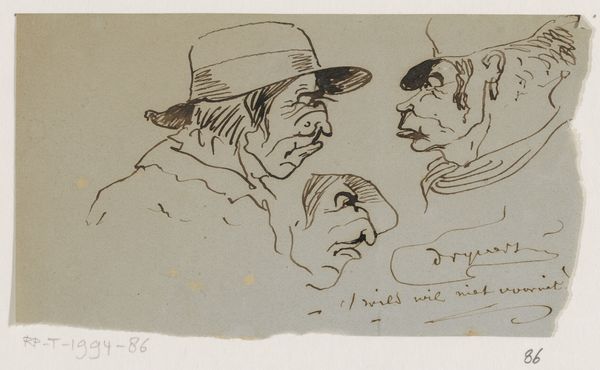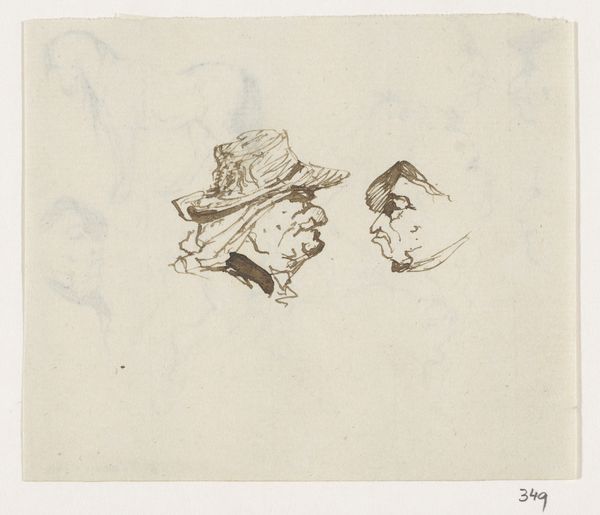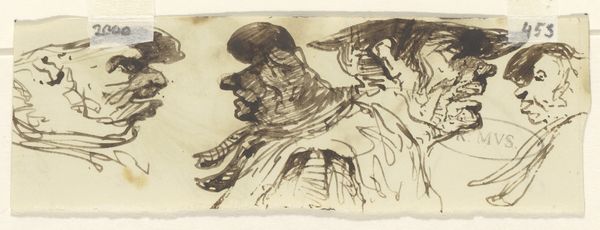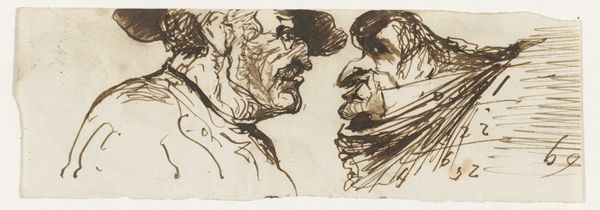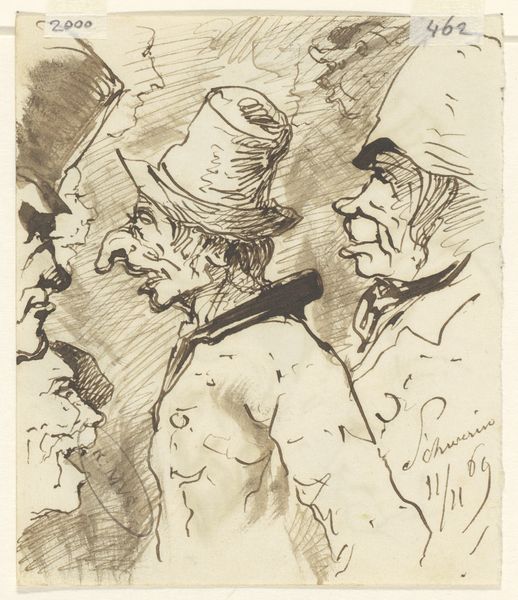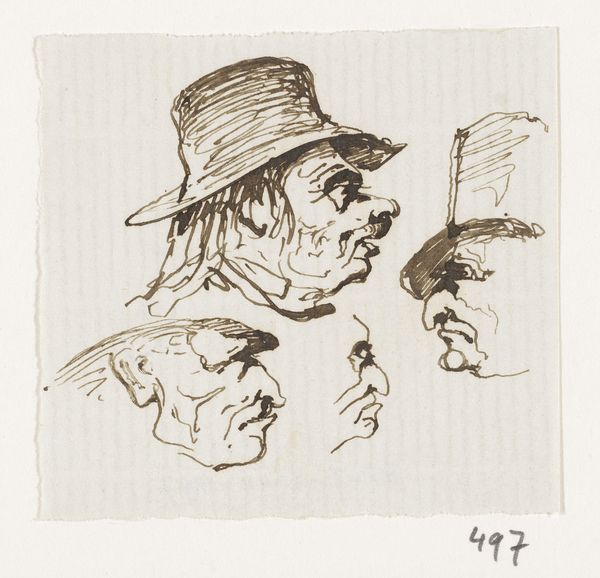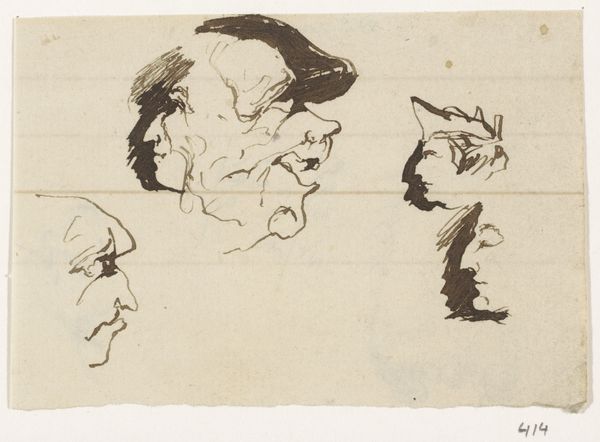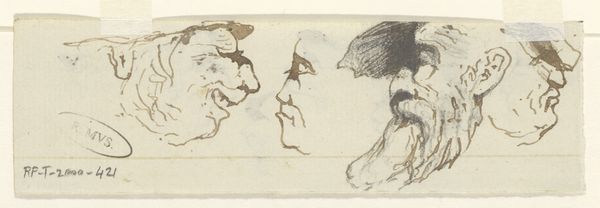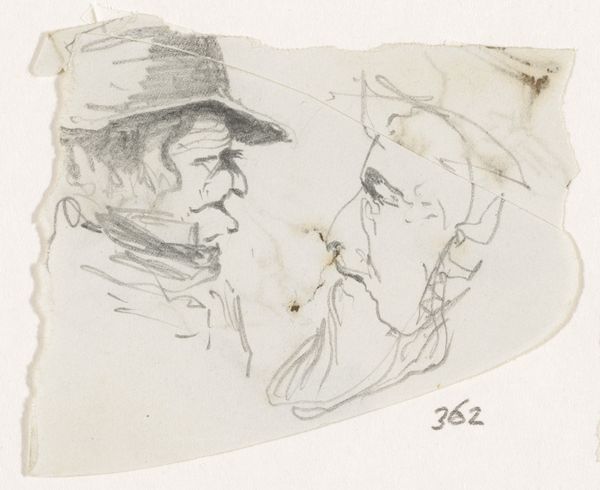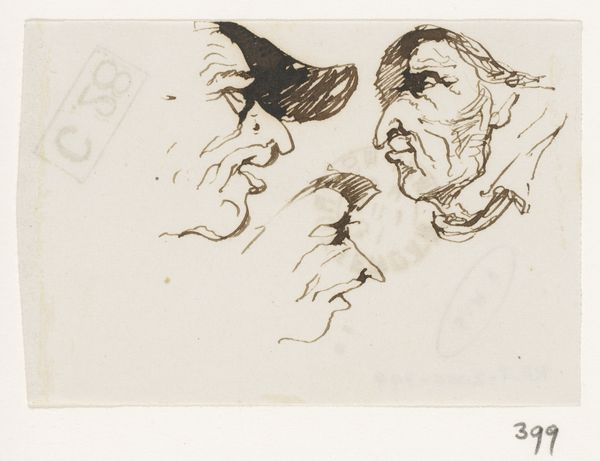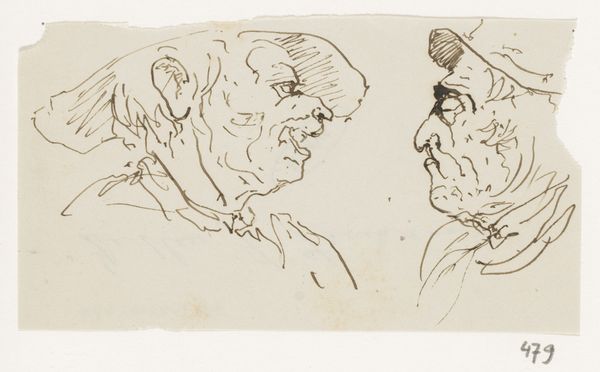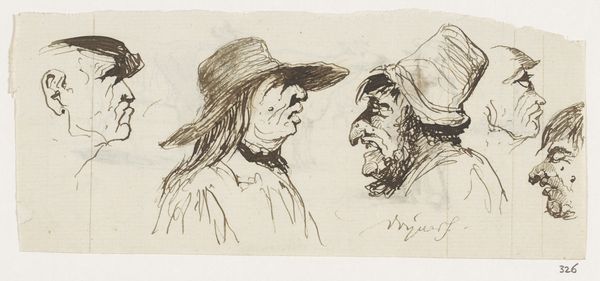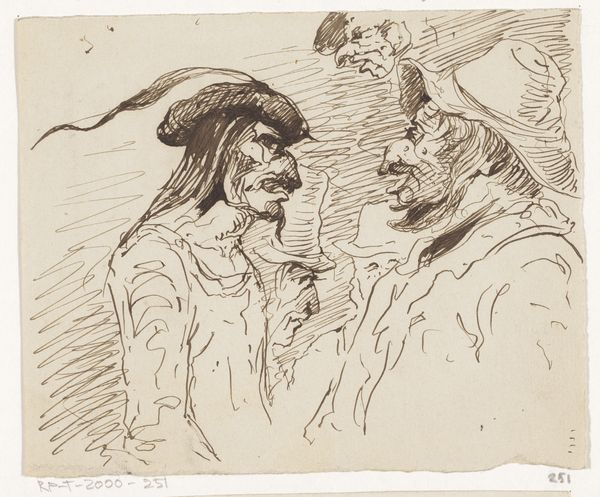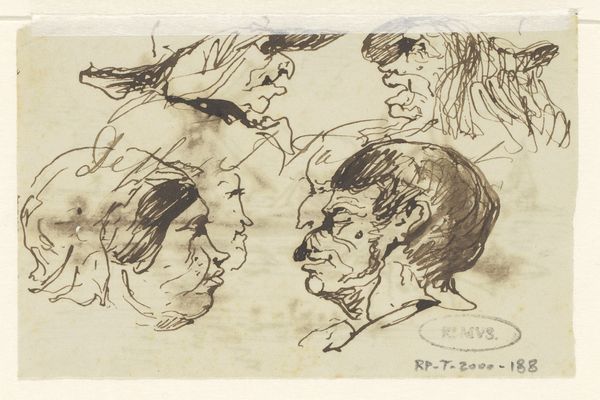
drawing, ink
#
portrait
#
drawing
#
dog
#
figuration
#
ink
#
portrait drawing
#
genre-painting
#
realism
Dimensions: height 95 mm, width 120 mm
Copyright: Rijks Museum: Open Domain
Johannes Tavenraat likely made this drawing, "Three Heads and a Dog," in the early to mid-19th century, using pen and brown ink on paper. These aren't the high-end materials of fine art; instead, they're the everyday tools of sketching and record-keeping. Notice how the ink defines form, creating depth with layered strokes. The artist uses a range of hatching to add texture to the faces and the dog's fur. The immediacy of the pen line captures a sense of likeness, and the character of the sitters. This suggests that Tavenraat may have been swiftly capturing the likenesses of everyday people in the urban landscape of Rotterdam. The drawing reflects a shift towards more immediate, informal modes of art-making, a trend enabled by increasingly affordable materials. It moves away from the more formal, academic traditions. This piece asks us to appreciate the skill and artistry found even in the most modest materials and settings.
Comments
No comments
Be the first to comment and join the conversation on the ultimate creative platform.
